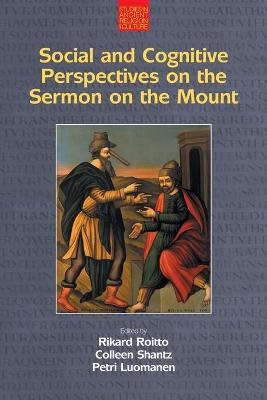Studies in Ancient Religion and Culture
1 total work
Social and Cognitive Perspectives on the Sermon on the Mount
Published 10 September 2021
Social and Cognitive Perspectives on the Sermon on the Mount introduces a broader group of scholars, students, and clergy to the relevance of social scientific and cognitive studies for interpretation of the Bible, by applying these approaches to what is possibly the most read and discussed text in the Bible. Because these approaches are invested in patterns of human cognition and social mechanisms, this collection highlights the persistent appeal and persuasiveness of the Sermon: from innate moral drives, to the biology of emotion and risk-taking, to the formation and obliteration of in-group/out-group distinctions. Through these socio-cognitive theories the authors show why-even across cultures and history-the Sermon continues to grip both individual minds and groups of people to shape moral communities.
